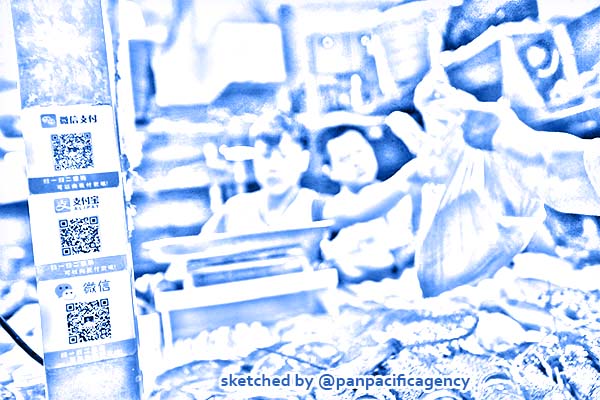All aquatic products in Thailand safe: Officials

Cashless payment platforms through smartphone-enabled QR codes are ubiquitous in China, expanding to a US$12.8 trillion market as at the end of October in 2017. Ant Financial’s Alipay and Tencent’s WeChat Pay are the two dominant service providers. Here a seafood hawker in Beijing announces he accepts both payment methods, on 9 August 2017. Photo: EPA. Sketched by the Pan Pacific Agency.
BANGKOK, Jun 20, 2020, The Nation. Amid widespread concerns that the second wave of coronavirus outbreak in China could spread to Thailand via imported salmon, the Department of Fisheries has assured that all aquatic animal products sold in Thailand are safe from the virus, The Nation reported.
China said on Thursday (June 18) that a new outbreak of the virus had been traced to imported salmon processed at Beijing’s Xinfadi food market. The news rocked confidence in the Thai seafood market, since Thailand imports large shipments of salmon.
However, no raw salmon products are shipped from China to Thailand, said the department director-general Meesak Pakdeekong.
Moreover, he added, the aquatic animal products consumed in Thailand were checked and controlled from those boats in the fishing industry. Also, the aquaculture farms are required to achieve the Good Aquaculture Practices standard.
Meesak also said that fish and other aqua products sold in those fresh markets have always been randomly checked by officials from the ministries of Interior and Public Health.
Under the epidemiological view, he explained that the aquatic animals are cold-blooded creatures, and there is no evidence that fish can carry the Covid-19 virus since their respiratory systems are different from those of mammals.
The World Organisation for Animal Health (Office International des Epizooties, OIE) reported that, apart from human beings, the coronavirus has been found in dogs, cats and bats.